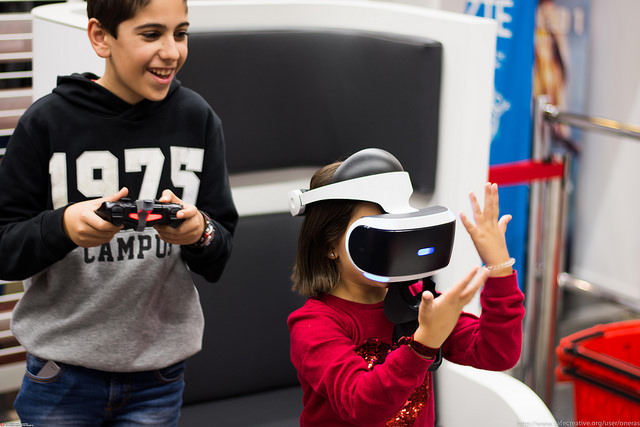Ever since personal computing debuted on world’s stage, we’ve heard a lot of ‘studies’ that preached the negative narrative, focusing on health concerns of personal computing on children eyesight. Now some evidence suggests that Virtual Reality might be able to actually improve your eyesight…
Pre -teen subjects reported that their vision was unchanged or even improved though an experiment. Conducted by the Beijing Advanced Innovation Center for Future Visual Entertainment and the Beijing Institute of Technology the experiment explored the impact of long -time VR HMD use on pre -teen users' vision.
They concluded that the considerable amount of simulated distance vision scenes used in VR HMD’s (head mounted display) contributed to a more positive influence on eyesight.
Vivid Vision is a medical technology company applying virtual reality to the field of vision care. Its founder and CEO, James Blaha, a programmer and lifelong sufferer of lazy eye, started the company after experimenting on himself. Before building the first prototype, Blaha couldn’t read with his weak eye or see in 3D.
Since then, the vision in Blaha’s weak eye has improved to nearly 20/20. His experiments gathered worldwide attention, and Vivid Vision launched its clinical vision therapy suite in late 2015 for optometrists and ophthalmologists.
Since then, the 90 clinics using it have treated more than 6,000 patients. On average, treatment lasts eight months, with patients coming one or two times a week to use the VR system.
What Wavelength VR’s thinks about it:
Luckily none of us went blind from sitting “too” close to the TV. This myth prevails because back in the 1960s General Electric sold some new-fangled colour TV sets that emitted excessive amounts of radiation—as much as 100,000 times more than federal health officials considered safe. GE quickly recalled and repaired the faulty TVs, but the stigma lingers to this day.
Any new technology has fear of the unknown attached to it but until significant data has been gathered no one can say for sure if prolonged exposure to VR is harmful to our eyesight. ‘Everything in moderation’ right? As the chinese study suggest , err on the side of caution, and take a 20 minute break every hour.
Link: https://vrworld.com/2017/07/19/study-vr-improve-eyesight/

